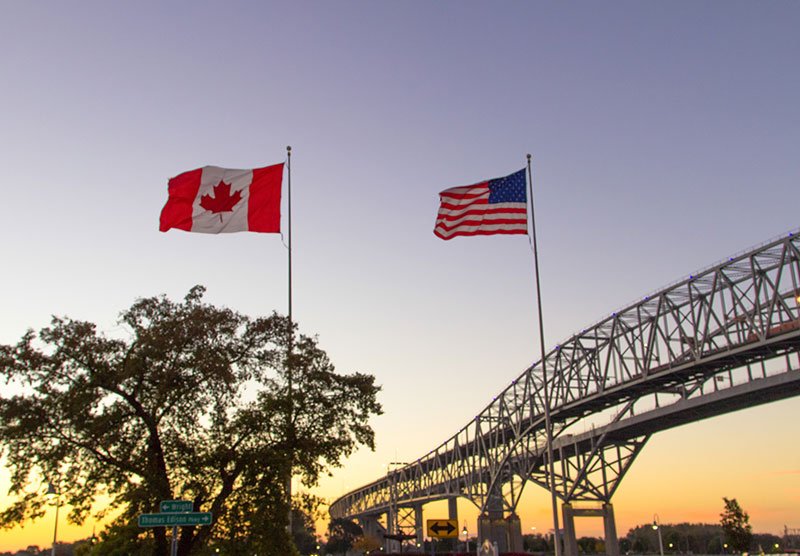Canada has ten different provinces. Throughout these provinces, each local legislation has the power to enact different laws when it comes to the laws and regulations associated with legal possession and the distribution of Marijuana. This means that Canadians and those who visit Canada must still be wary about possessing (and especially distributing) cannabis.
Here is an explanation that will help to clear up the question of how much weed you can have in Canada:
Cannabis Act of Canada
The Cannabis Act of Canada states that adults, depending on age and province, can legally possess and distribute up to 30 grams of Cannabis. However, while that is a law in Canada, it isn’t something you should rely on completely as there are a lot of different contingencies depending on where you are in Canada:
First of all, you must buy your weed from choose a reputable online dispensary. While that makes sense, it severely limits people who genuinely just want to experiment with their own crops.
Granted, you can cultivate plants for personal use. However, you can only legally own 4 plants per residence and you also need to get them from authorized dispensaries. This means that you are only allowed to grow as well as consume what the government has approved.
Secondly, when the law states that you can purchase 30 grams of weed, what they really mean is 30 grams of dried weed. Any time the law refers to the 30 grams, especially in reference to the Cannabis Act, they are referring to dried weed.
Here is the breakdown of each specific possession limits for what the law considers 30 grams of dried cannabis to be equivalent to in its various forms:
- 150 grams of fresh cannabis
- 450 grams of edibles products,
- 2,100 grams of liquid product
- 5 grams of marijuana concentrates
- 30 grams of cannabis plant seeds
Provincial Act
Until now, the rules of the Cannabis Act of Canada were not overly complicated. However, with the new Providence Act that was implemented was what has made the legislation a lot harder to follow. This act makes it so each respective territory can regulate the rules and restrictions of weed consumption. The most common difference in the law throughout the territories (providences) is age-related. Some of the provinces chose to raise the legal age of cannabis consumption to the existing legal age for alcohol consumption.
Yet, this new act gives territories even more freedom to amend the federal law as each jurisdiction sees fit. This freedom can be potentially confusing for people and could possibly lead to legal issues.

Crossing the Border with Weed is Still Illegal
Even though there is a federal legalization order of cannabis in Canada, that does not extend to crossing over the border into the United States or coming back to Canada with weed you purchased from the United States. Whether you are a Canadian citizen or not, you cannot bring weed in or out of Canada legally.
However, you do have the ability to travel with weed, even on a plane in some cases, given certain parameters:
One of the most interesting aspects is that you are allowed to carry the maximum legal possession limit on a plane. However, to be able to board the plane with the legal amount of up to 30 grams in recreational weed, you need to only be flying within Canada.
Additionally, you need to also have proof of your purchase coming from a licensed dispensary on your person.
Of course, you cannot board a flight with weed if you are going anywhere internationally. This prohibition expands to crossing international borders with any weed product, including that which is used for medical purposes.
Even if your flight is going to a country where weed is legal, you still cannot leave the country legally with Canadian weed. If you do so, you can be subject to serious legal ramifications. There are also strict regulations in place for the importing and exporting of weed. The only people who are allowed to import or export weed are licensed producers. Moreover, even these licensed producers can only import or export weed for medical or scientific purposes and even that requires a strictly regulated permit from Health Canada for each and every shipment.
Public Usage Restrictions
Even if you are an adult who has done everything right, and is able to legally possess weed in Canada, you can only use it at places that are considered private residences. This includes backyards, apartments, and many outdoor public places. Although, always make sure you have proof of acceptance if you are partaking outside of your own home.
However, there are a few specifics which limit the freedom of even partaking in your own home:
Renters: Canadians can smoke in homes that they own. However, renters must receive permission from their landlord.
Although, many provinces throughout Canada, such as Ontario, British Columbia, and Alberta have already banned smoking both cigarettes and cannabis indoors throughout areas that are considered public spaces, public transit facilities, and workplaces. Other Canadian provinces, such as Halifax went a step further; assigning specific smoking-friendly locations throughout the region.
Visitors: Depending on where your home country is, even if you visit Canada, you still may not be able to partake in consuming weed. While weed consumption is legal throughout Canada, there are some visitors that are prohibited by the laws of their home country that extend to the Great White North. One specific example is the Embassy of the Republic of Korea in Canada. This Embassy has decreed that it’s illegal for South Koreans to use cannabis in any form, even when its citizens are visiting a location where it is legal.
Obviously, this is not something that Canada’s legal system has any control over. Nevertheless, it is important for visitors to be aware of any obscure issues of this kind; as if they don’t, they could run into unexpected, and sometimes serious trouble, while visiting the country.
To close, it is not easy to navigate the intricacies of the current Canadian weed legalization. While there is a genuine effort for legalization, it is still in its infancy, and thus the possession, cultivation, acquisition, and consumption of weed in Canada comes with heavy regulations. However, ultimately, it is best to believe that these regulations are part of the progression and are created to regulate the safety and quality of weed in Canada.
